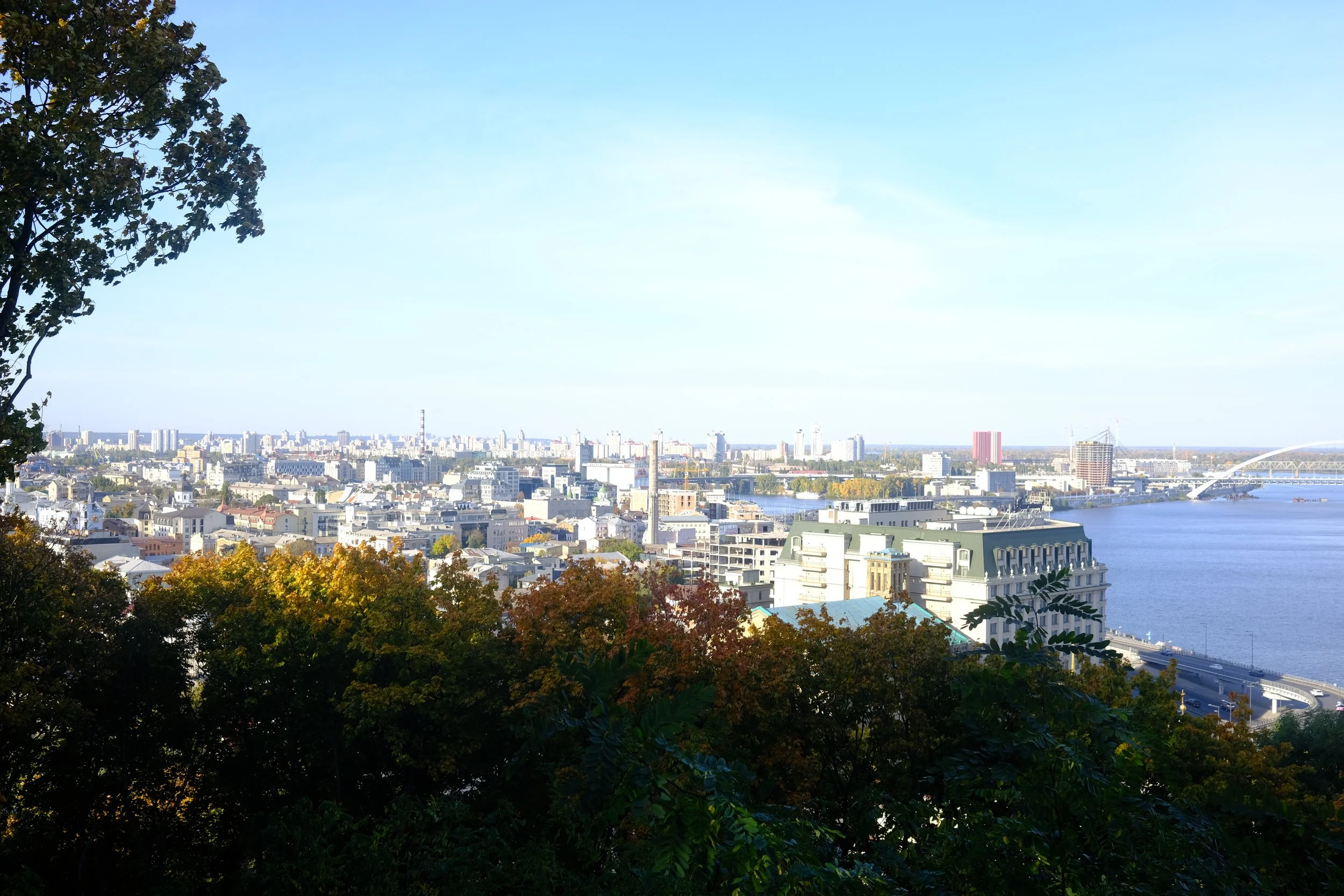Statement on the Russian Invasion of Ukraine
Kyiv - Photo by Bjørn Ihler
We at the Khalifa Ihler Institute stand with the people of Ukraine against the unlawful imperialist attack by the Russian autocratic regime.
We recognise the right of the people of Ukraine to self-determination, peace, human dignity and rights. The unwarranted invasion of Ukraine by the authoritarian Russian regime renders these rights as meaningless for the people of Ukraine, as it has been for the people opposing the regime within the Russian Federation for years.
Russian expansionism and imperialism have been a persistent threat to the integrity and self-determination of Europe since the invasion of Georgia in 2008, and demonstrated again by the illegal annexation of Crimea in 2014, and again over the past few days. The military and territorial expansion of Russia was preceded by significant influence campaigns run over the past decade to build legitimacy and support for Russian interest in Western democracies, while at the same time destabilising them.
The efforts to influence and destabilise have among others been managed through persistent mis-, and disinformation campaigns, as well as support and funding to political parties and para-military organizations on the far-right from sources close to the Kremlin. The threats posed by these groups, and by extension by the Russian regime itself, to liberal democracies and communities' ability to exist as diverse, thriving and peaceful, is, as repeatedly demonstrated, not theoretical.
By pandering to the Russian regime, by allowing for campaigns deteriorating the fundamental infrastructure of democracy and liberty, by allowing for imperialist acts of violence and unsanctioned abuses of human rights, Europe has left itself in a weakened position.
By maintaining normalised trade relations with the oligarchy of Russia, by treating its political sector as normal international actors, and by continuously supporting the position of Russia and the other permanent members of the UN Security Council as veto-empowered members, the world, including the governments of Western Europe and the US have been complicit in allowing for these abuses by the Russian regime. Furthermore western governments, through their own hostile and violent actions across the world, support for authoritarianism, and campaigns to destabilize nations, has emboldened Russia and other authoritarian actors.
The norm has been to treat Russia as a rational actor in international affairs. One that has the best interest of its own people at heart. This assumption is inherently flawed as has been demonstrated through a range of abuses towards Russia’s own people since the end of the Soviet Union.
The lack of cohesive international responses to the persistent abuses by the Russian authorities against their own people, and people in neighbouring countries and beyond, including in Syria and Libya, has deteriorated any sense of accountability and consequentiality among the ruling elites of Russia. Attempts at finding diplomatic solutions are rendered meaningless when they come entirely without accountability mechanisms.
As a peace-promoting organization, we are appalled both by the actions of the Russian authorities and by the inaction of western governments and international bodies including the United Nations over the past decades, that have allowed for the situation to deteriorate to this point. We hope that the lessons the world learnt in the aftermath of WWII have not been wasted and that the global coalition of democratic states will stand up for its citizens and all those oppressed.
The victims of war are never those who start it, nor those who stand to benefit from it, but those living in the midst of the battles. The international community of democratic states must send a clear message that we do not accept this imperialist and brutal expansionism demonstrated by the Russian regime.
We at the Khalifa Ihler Institute continue to monitor the situation closely and remain committed to working with civil society and partners in Russia and Ukraine to advance and protect human rights, democracy, diversity and peace.
